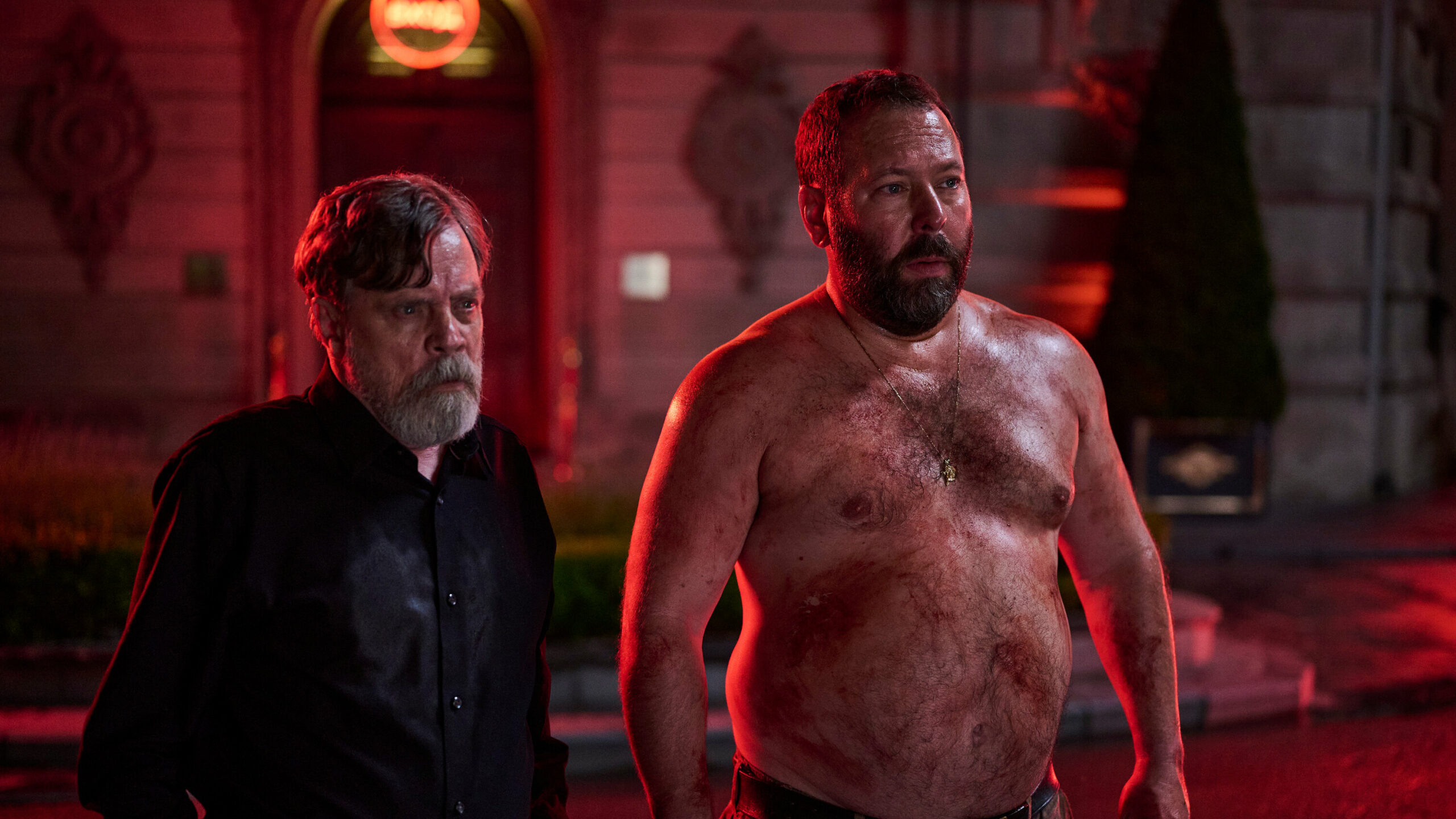“The Machine,” is based on the notable sketch by stand-up comic Bert Kreischer. It explores his unintended associations with the Russian mob during a college trip to Russia. The film weaves comedy into a tale of a casual partygoer participating in a train robbery. It takes a narrative that could easily fit an early 2000s comedy and elongates it rendering humor within a story.
See Also: Superpower (2023) — Movie Review
In the film, Jimmy Tatro plays the youthful version of Kreischer. He portrays mishaps and amusing entanglements in his earlier years. However, his entry is somewhat delayed due to an unconventional storytelling approach. The film kicks off with Kreischer, as himself, depicting his life following his routine’s viral success, which has aggravated his penchant for a wild lifestyle, affecting his personal life, yet skyrocketing his podcast ratings.
Kreischer’s wild tales catch the attention of a Russian mobster who lost a cherished family watch in one of Kreischer’s misadventures. He dispatches his stern daughter, Irina, played by Iva Babić, to retrieve Kreischer. She demands he find the lost item in Russia. This ignites a series of flashbacks explaining his initial Russian expedition and unintentional involvement in a crime.
The incorporation of Kreischer’s current life lays bare the struggles within his household. It is marked by strained relations with his daughter Georgia and amplified by the presence of his prying father Albert, played by Mark Hamill. These early scenes, set in the US, seem to necessitate significant audience familiarity and investment in Kreischer’s real story. It oscillates between being a monumental, universally known hit, and a fascinating enigma for the uninitiated.
The film struggles with maintaining a balance between narrating the original story, avoiding redundancy for existing fans, and elaborating on it without alienating newcomers. “The Machine” navigates this tricky terrain, choosing mostly to delve into reflections on the original story. This project would have benefited from a clearer grounding in a specific timeframe. There are discrepancies in references and timeframe indicating a need for more meticulous alignment with the source material.
Some humor does emerge successfully, such as Albert’s hilariously earnest vow of nonviolence after a brush with Nelson Mandela’s biography, and a handful of effective visual jokes. However, among the portrayal of Russians, only Irina manages to resonate as a comedic entity, albeit slightly.
Director Peter Atencio, with experience from the Key & Peele series and their film “Keanu,” typically has a knack for embedding genuine cinematic elements in ludicrous contexts. However, in “The Machine,” there’s a noticeable lean toward polished aesthetics over visual humor. This is perhaps a constraint of the script not providing enough comedic substance. Despite its stylistic execution, the film’s humor quotient surprisingly lags, culminating in a quasi-resolution where Kreischer undergoes an improbable transformation.
The film’s attempt to bestow Kreischer with some form of redemption is founded on an implausible revelation about the role of a comedian. The assumption that audiences will applaud Kreischer’s reckless vodka-fueled antics and extract profound life lessons about self-acceptance and equilibrium appears to be a bit of a stretch and a form of self-delusion.
“The Machine,” while ambitious and stylistically commendable, struggles with its comedic impact and coherence. Its narrative structure balances between catering to fans of Kreischer’s original routine and creating an engaging story for newcomers. It vacillates between a reflective exploration and a comedy. Ultimately it yields a film that seems to be grappling with its identity and coherence.
